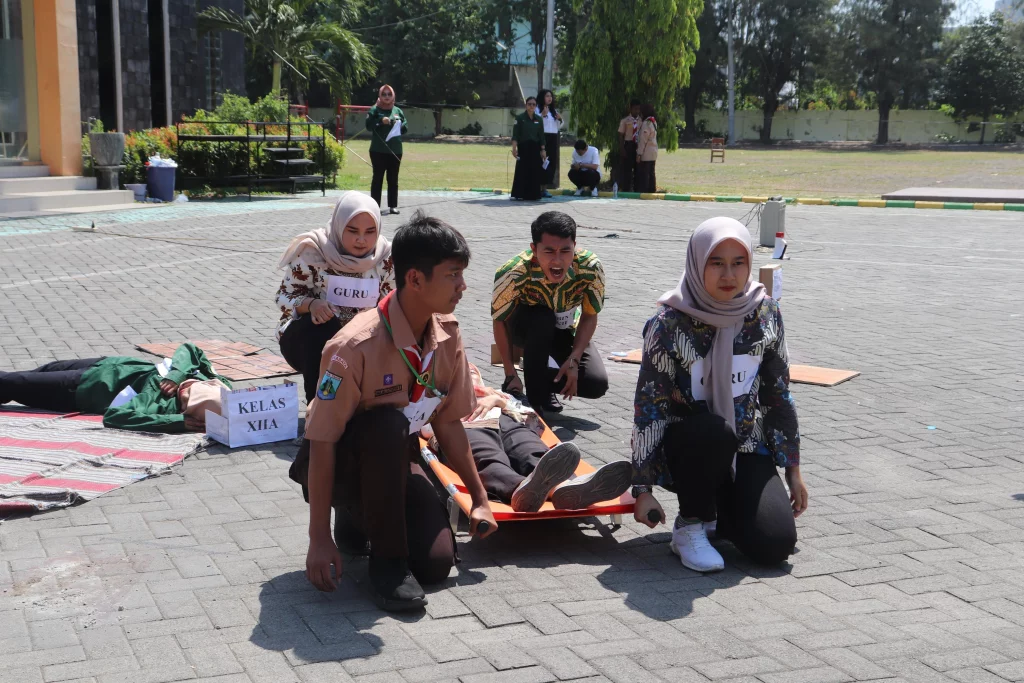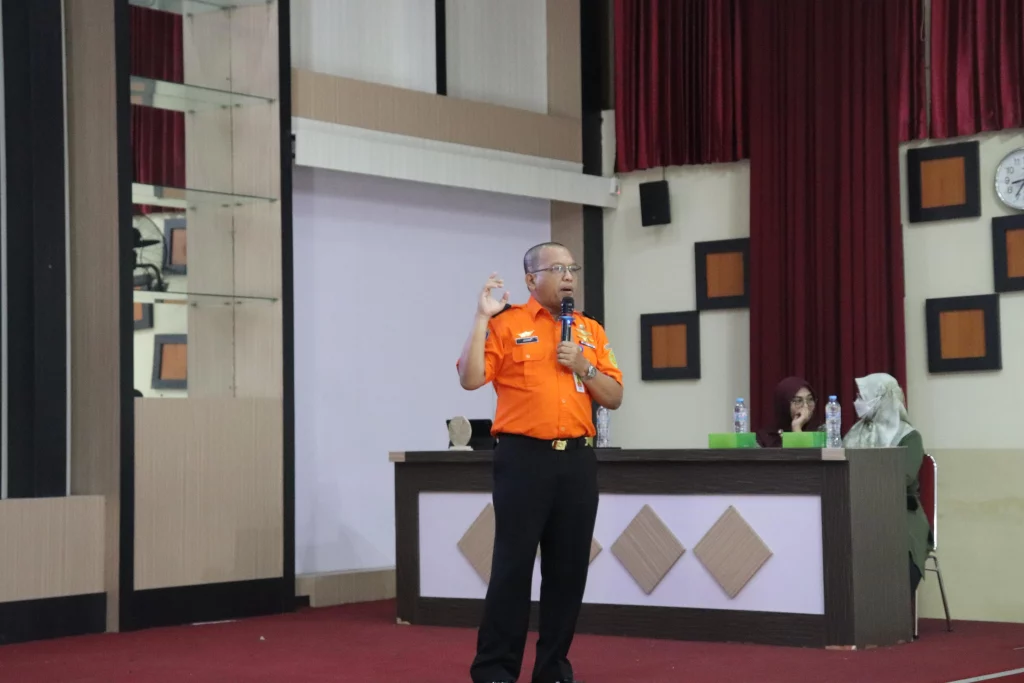UNAIR NEWS – The potential for a megathrust earthquake remains a significant concern for Indonesians, especially given the country’s location in an earthquake-prone zone. In response, students from Universitas Airlangga’s (UNAIR) Transfer Program Batch B26 and the Medical-Surgical Nursing Specialist Program organized an earthquake preparedness seminar on Saturday, October 19, 2024, at SMKN 5 Surabaya.
The event, titled The Future of Education: Innovation and Preparedness regarding Trends in Megathrust Earthquake Issues in Project-Based Learning for Adolescent Development, featured a presentation by Johan Saptadi from National Search and Rescue Agency (BASARNAS), who covered earthquake preparedness and ways to reduce casualties.
Saptadi emphasized that the program wasn’t limited to lectures but also included earthquake simulations involving the students. “The simulations focused on quick and precise evacuations, triage procedures, and first aid for disaster victims,” he explained.
During the debriefing session, Saptadi provided detailed instructions on executing fast and efficient evacuations based on real-time conditions. “The simulation helps students understand the steps to take during an earthquake, and although situations on the ground may vary, the evacuation procedures remain the same,” he said.

Importance of earthquake preparedness education
Marta Afrifantinu Surya, a nursing student and the event’s lead organizer, explained that the initiative aimed to boost students’ readiness for a potential megathrust earthquake, which could occur at any time. “We chose this theme based on the earthquake that hit Surabaya last March, which caused damage to several hospitals. That’s why earthquake preparedness is so important, especially for students and the broader community,” Surya explained.
She added that the event also included pre- and post-tests to assess students’ knowledge before and after the disaster preparedness training. After the simulations, the organizers and students conducted a thorough evaluation, guided by BASARNAS personnel and UNAIR nursing faculty. “The evaluation aimed to identify shortcomings during the simulation and provide feedback for more effective action in the future,” she noted.
In conclusion, she hopes that the outreach program will significantly enhance earthquake preparedness among students and the general public. “Our goal is for this experience to foster greater readiness and prompt, effective responses during a disaster,” she concluded.
Author: Hana Mufidatuz Zuhrah
Editor: Edwin Fatahuddin









